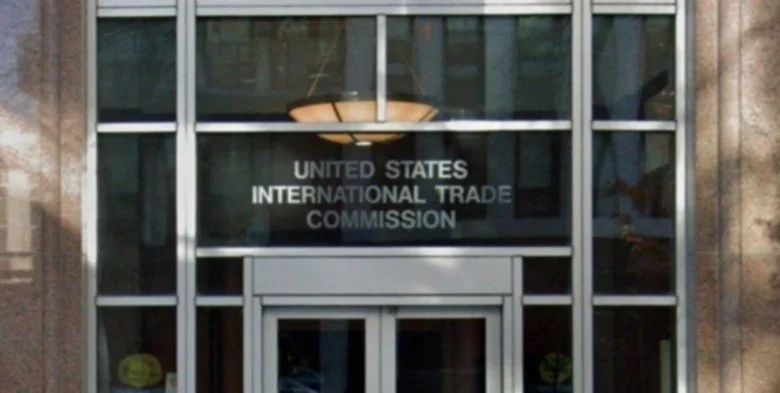
Safeguards
Temporary safeguards are remedies designed to prevent or mitigate injury to US industries from increased imports and have generally been employed sparingly in the last 25 years. Section 201 of the Trade Act of 1974 (Section 201 or 201) authorizes the US International Trade Commission (ITC), an independent, nonpartisan, quasi-judicial federal agency, to investigate whether increased imports seriously injure, or threaten to injure, US industries and recommend to the President relief that would prevent or remedy the injury and facilitate industry adjustment to import competition.
Before being put into use by the first Trump Administration, the last Section 201 action was in 2002, when then-President George W. Bush imposed tariffs of up to 30 percent on imports of most steel products from most countries. In 2018, President Trump placed Section 201 tariff-rate quotas on large residential washing machines, which expired in 2023, and on solar cells and modules, which were extended by President Biden for four years in 2022.
Imports of solar cells and modules into the United States, for example, have been an issue for decades. The US Trade Representative found that China used state incentives, subsidies and tariffs to grow its market share from 7 percent in 2005 to 60 percent of the world’s solar cells and 70 percent of the world’s solar modules in 2017. Between 2012 and 2016 , import volumes grew 500 percent and prices fell by 60 percent. By the following year, only one US producer of both solar cells and modules and eight US producers of modules using imported cells remained.
In 2017, the ITC found that these products were being imported into the United States in such increased quantities as to be a substantial cause of serious injury, or threat of serious injury, to the US domestic industry. In 2018, President Trump imposed a tariff-rate quota on imports of certain solar cells, with 30 percent tariffs on all other solar modules and products and imports exceeding the quota (i.e., a tariff-rate quota). The tariff level was set to 25 percent, decreasing by 5 percent for each of the three subsequent years. At its midterm review in 2021, the ITC found that the safeguard action continued to be necessary to prevent or remedy the serious injury to the domestic industry, and that there was evidence that the domestic industry was making a positive adjustment to import competition. In 2022, President Biden extended the safeguard action for an additional four years. In May 2024, President Biden removed the exclusion granted by the previous administration and imposed Section 201 tariffs on certain two-sides solar panels. The tariffs are set to expire on February 7, 2026.
Process
Any interested person representing the US industry, including firms, unions, trade associations or groups of workers may file a petition. Investigations may also be self-initiated by the ITC or based on a request from the US Trade Representative, the House of Representatives Ways and Means Committee or the Senate Finance Committee. The ITC must initiate promptly and complete its initial investigation into whether an article is being imported into the United States in such increased quantities as to be a substantial cause of serious injury, or the threat thereof, to the domestic industry. The ITC must make its determination within 120 and 210 days, depending on whether certain “critical circumstances” exist and whether an investigation is extraordinarily complicated. The ITC must provide public notice, seek comment, hold public hearings and publish its findings.
If the ITC finds injury as a result of this investigation, it proceeds to the remedy phase, in which it makes recommendations for actions to address the injury, or threat thereof, to the domestic industry. The ITC must, in this phase as well, provide public notice, seek comment, hold public hearings and publish its findings.
Remedy
Available remedies include an increase in, or the imposition of, any duty; a tariff-rate quota; a modification or imposition of any quantitative restriction; other more appropriate adjustment measures, including the provision of trade adjustment assistance; or any combination of the actions above. The ITC may also recommend that the President undertake international negotiations to address the underlying cause of the increase in imports of the article or otherwise to alleviate the injury or threat; or implement any other action authorized under law that is likely to facilitate positive adjustment to import competition. The ITC must specify the type, amount and duration of the action it is recommending and submit its report to the President within 180 to 270 days after the petition is filed, depending on whether the petitioner alleges critical circumstances.
The President generally has 60 days to take action on the ITC’s report, which could include accepting, modifying or rejecting the ITC’s recommendation.
World Trade Organization Rules on Safeguards
The WTO Agreement on Safeguards sets out the basic rules relating to safeguards, including criteria for determining serious injury, notice and evidentiary requirements, which Section 201 closely follows. In addition, the Agreement on Safeguards sets time limitations for trade protection and adjustment, as well as rules for the circumstances under which countries subject to safeguards measures can seek compensation from the administering country in the form of reciprocal trade measures.


